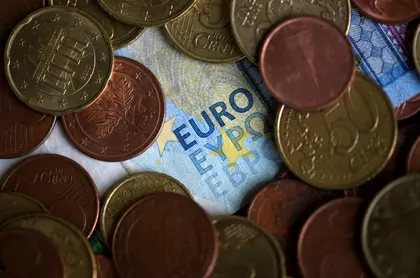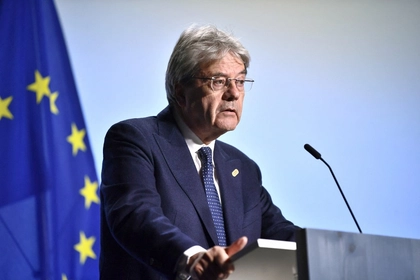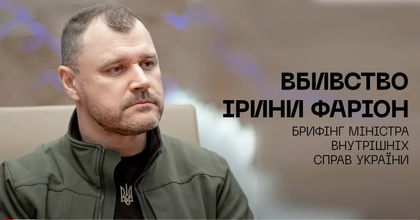Today I was at the Seventh Ukrainian Investment Roadshow put on by the folks at the Strategy Council - a great event.
I was on a panel on the macro outlook for Ukraine and I was asked about the outlook for debt relief on Ukrainian Eurobonds.
JOIN US ON TELEGRAM
Follow our coverage of the war on the @Kyivpost_official.
Interesting topic.
As is Eurobond holders agreed to a two year payments moratorium back in August 2022, which ends in theory this summer. The IMF as part of the agreement on the 48-month $15.6 billion EFF reached in March 2023 then included the requirement for the Ukrainian authorities to seek a further debt “treatment” (euphemism for debt write off) with private creditors in the first half of 2024. See here:
At the time I thought that this was a bit weird, as for a meaningful agreement over a debt treatment, a DSA needs to be produced which requires a macro framework which can be relied on to a certain extent. As long as the war is on-going it is very hard to produce that macro framework, or at least one that bears any resemblance to reality. So why the rush? Why not just ask creditors to extend the existing payments pause until the war ends, and a credible macro framework and DSA can be produced? The latter seems more logical. Why agree to a restructuring in H124, only to potentially see the macro numbers change significantly further down the line, either up or down. If down, then second restructuring would be then required. It’s just a huge waste of time/effort when the Ukrainian side have lots more important things to focus on.

Kuleba Talks Peace in China – Bohdan Nahaylo
The logic I guess is that by agreeing some kind of debt treatment early in 2024, the clock can start ticking on Ukraine then potentially getting early market access again. Remember after the 2015 debt restructuring, it still took two years for Ukraine to re-access markets. But given the urgent needs of Ukraine for reconstruction and for the Ukrainian economy to get back on its feet ASAP to rebuild its defences against future Russian aggression, the earlier market access is established, the better. I get that.
Given the focus on the need for speed, the assumption has to be that this preemptive debt treatment (read restructuring) will be very investor friendly - trying to push an aggressive debt restructuring down bondholders throats would risk holdouts and long delays getting agreement. I guess the authorities would argue that if a soft treatment does not prove sufficient to ensure longer term debt sustainability - say if the war extends causing more macro damage - they can always come back to the table and push for a second debt restructuring further down the line. But going earlier gives them the best option of early market access. That said, if the NPV reduction is minimal, why even bother - and TBH, given the now limited share of hard currency private debt in the total public sector debt stock (less than one fifth), a soft treatment would hardly move the dial. Again, why brother. Just extend the debt payment standstill, and if the war ends earlier, lift the standstill, and Ukraine could have much earlier market access - likely within months. Actually by this logic an early treatment could actually do the opposite of the intention, and delay early market access.
The other problem in coming to bondholders early - in H124 - asking for a preemptive debt treatment is that surely bondholders will make the very good arguement as to why they are being hit with a demand for debt relief while the assets of Russia in Western jurisdictions is being left untouched. There is thought to be close to $400bn in frozen or immobilised Russian assets in Western jurisdictions - which would go a long way to covering the likely $500bn plus of damage done by Russia to the Ukrainian economy and rebuild costs and reparations. Morally Russia has to be made to pay. Indeed, why should Western taxpayers (either through grants, loans or debt relief) and Western private creditors (mostly pension funds, through debt relief) be made to pay for the damage done by Russia to Ukraine? Indeed, why are our governments doing everything they can to protect Russian assets? In agreeing to debt relief Western private creditors - bondholders - would be easing pressure off our governments from doing what is morally and politically right, which is seizing frozen and immobilised Russian assets in our jurisdictions for use by Ukraine. As is the EU compromise of using the investment returns from some of these immobilised Russian assets (in Euroclear) does not touch the sides in terms of Ukrainian reconstruction needs - generating single digit billions as opposed the likely tens of billions in annual reconstruction needs. I think this is just a big PR exercise to actually do nothing. It’s going thru the motions but actually pulling the wool over our eyes.
I think Western private sector creditors should send a strong signal to our governments - debt relief for Ukraine, yes, but only after immobilised/frozen Russian assets have first been utilised. Our governments normally are very good at spending other people’s money - taxpayers or private creditors dumped on in debt restructurings - so it seems obscene this time around that they seem to think that the country that caused all the damage, committed war crimes, and genocide, should, get away without paying a penny. Our governments are protecting the assets of the aggressor herein and remarkably writing a cheque from us to avoid making Russia pay. This should be a huge political scandal.
Lots of focus on ESG these days and I would think as asset managers we have an ESG responsibility to call out our own governments for this, and to absolutely make sure that Russia pays for its aggression against Ukraine.
Reprinted from @tashecon blog. See the original here.
The views expressed in this opinion article are the author’s and not necessarily those of Kyiv Post.
You can also highlight the text and press Ctrl + Enter






